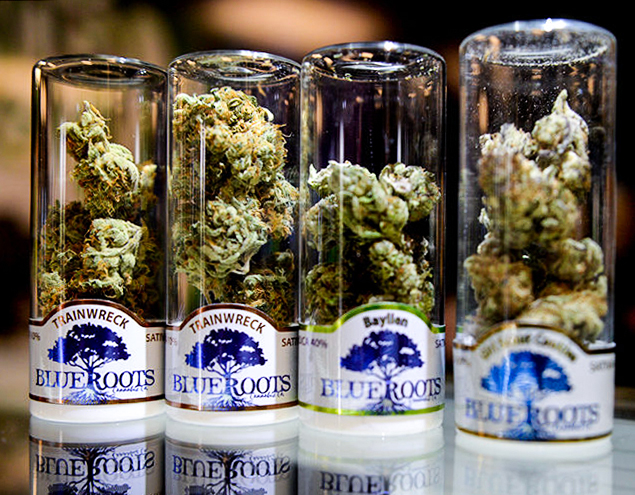Partnership to increase WSU cannabis research
Collaboration to ease access of marijuana for research purposes
MICHAEL LINDER | DAILY EVERGREEN FILE
Michael McDonell, chair of the WSU Collaborative for Cannabis Policy, Research and Outreach, says the University of Mississippi is the only source of cannabis for researchers.
November 12, 2019
WSU researchers partnered with the Biopharmaceutical Research Company in hopes of increasing access to cannabis for research.
Michael McDonell, chair of the WSU Collaborative for Cannabis Policy, Research and Outreach, said the partnership with the research company would allow WSU researchers to gain access to cannabis in a more efficient way while still complying with federal guidelines.
The WSU collaborative focuses on increasing cannabis research at the university while complying with federal guidelines, he said.
Currently, the University of Mississipp growing facility is the only legal source of cannabis for researchers who want to study the plant in the U.S., he said. Many researchers are waitlisted.
McDonell said the BRC has applied to the DEA to become another cannabis grower for research purposes like that of the University of Mississippi. Pending the approval by the DEA, the BRC would supply cannabis to WSU researchers, thus increasing the accessibility of cannabis research.
There are around 70 researchers in the WSU CCPRO who are involved in cannabis research at this time, he said. They conduct cannabis research on animals, the impact of cannabis use on brain development, and research on cannabis revenue, he said.
Ryan McLaughlin, assistant professor for the department of integrated physiology and neuroscience, said he believes that the partnership between the BRC and WSU is ideal to help increase the amount of research done on cannabis.
If a researcher wants to perform an experiment using cannabis or THC, the process would first involve getting university approval and creating a safe environment to smoke cannabis in that wouldn’t pollute the air, he said.
McDonell said that a researcher would need to obtain a Schedule 1 License. This license is the highest form of approval a researcher can get from the federal government. This allows for researchers to possess legal drugs from the DEA to use in an experiment on humans or animals. He said examples of these drugs include cocaine, methamphetamine, heroin and oxycodone.
He said several WSU researchers have a Schedule 1 License regardless of strict regulations. After researchers have obtained their license, they must then get the cannabis needed to perform research, McDonell said.
McDonell said this current process of gaining access to cannabis for research can have two main setbacks. First, researchers must get DEA approval to possess cannabis. This can sometimes be a long process depending on the demand of the cannabis needed, he said.
Second, there is only one source to get research cannabis, meaning resources are limited.
“We have seen the business model the BRC has, and we believe if the DEA begins to approve other growers the BRC will be one of the first groups approved,” he said.
McLaughlin said as one of the first states to pioneer recreational cannabis legalization, new data is needed on the acute and long-term outcomes of cannabis use.
He said that this research can only be accomplished by using products that replicate what is already available on the legal market. He said he believes the partnership between the BRC and WSU is an important first step in accomplishing this goal.
“We probably know less about cannabis than any other drug, so we really need to speed up the research we are doing because the cannabis industry is not going to wait for us,” McDonell said.















